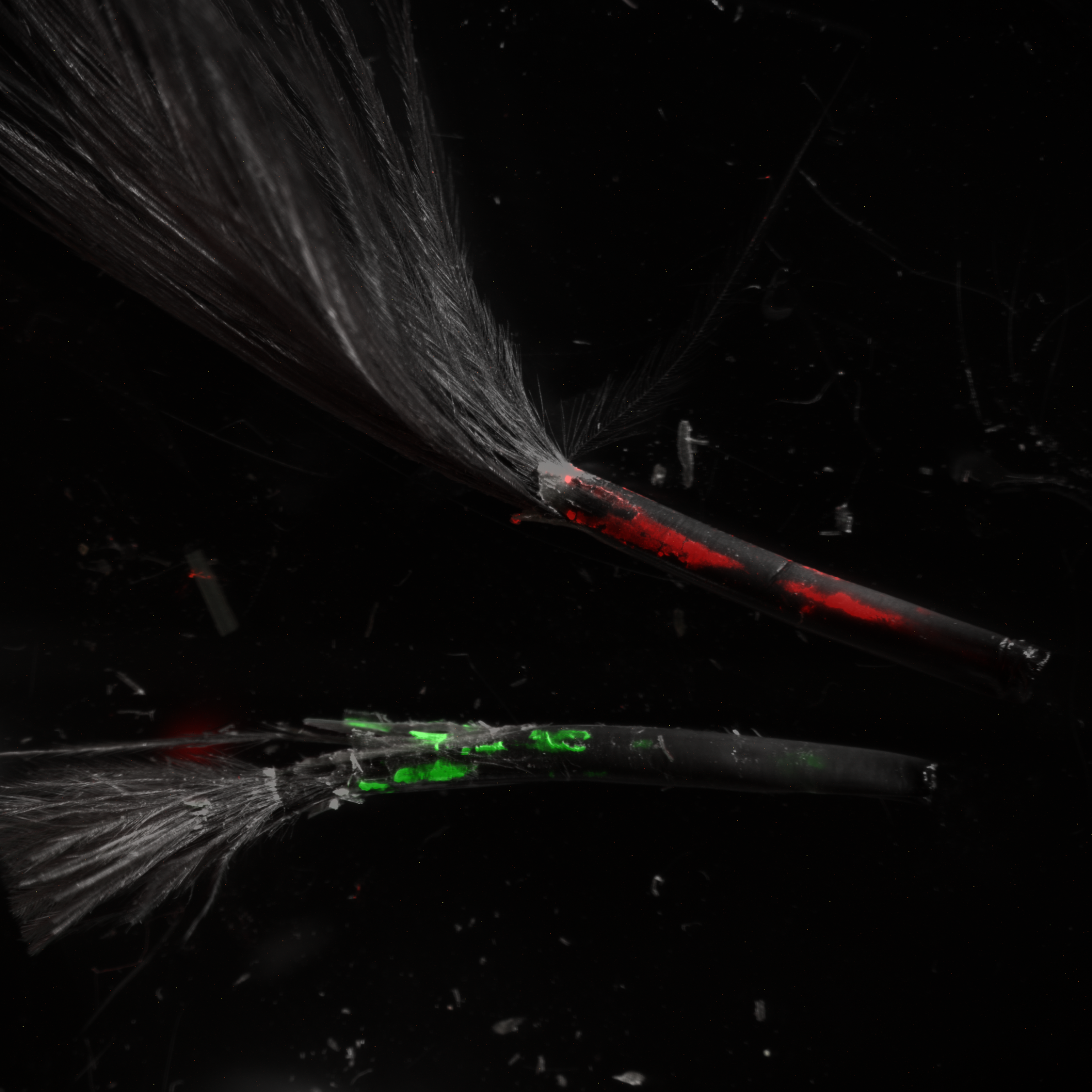Molecular characterization of Marek's disease virus in a poultry layer farm from Colombia
Marek's disease (MD) is a lymphoproliferative disease caused by an Alphaherpesvirus, genus Mardivirus, serotype 1 (Gallid Herpesvirus 2, GaHV-2) that includes all known pathogenic strains. In addition to Marek's disease virus (MDV) serotype 1, the genus includes 2 distinct nonpathogenic serotypes: serotype 2 (GaHV-3) and serotype 3 (Meleagridis Herpesvirus 1, MeHV-1) which are used in commercially available vaccines against MD. As a result of vaccination, clinical signs are not commonly observed, and new cases are usually associated with emerging variant strains against which the vaccines are less effective. In this study, a commercial layer farm showing clinical signs compatible with MDV infection was evaluated. Histological lesions and positive immunohistochemistry in the sciatic nerve and thymus were compatible with cytolytic phase of MD. GaHV-2, GaHV-3 and MeHV-1 were identified by PCR and qPCR in blood samples from 17 birds with suspected MD. Analysis of the Meq gene of the Colombian GaHV-2 isolate revealed a 99% sequence identity with Asian strains, and in the phylogenetic analysis clustered with vv+ MDV. The analysis of amino acid alignments demonstrated an interruption of the proline rich region in P176A, P217A and P233L positions, which are generally associated with vv+ strains. Some of these changes, such as P233L and L258S positions have not been reported previously. In addition, primary cell cultures inoculated with lymphocytes isolated from the spleen showed typical cytopathic effect of GaHV-2 at 5 d post infection. Based on the molecular analysis, the results from this study indicate the presence of vv+ MDV infection in commercial birds for the first time in Colombia. It is recommended to perform further assays in order to demonstrate the pathotype characteristics in vivo.

